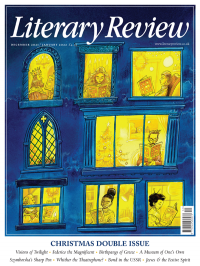Jonathan Healey
For King & Capitalism
Merchants: The Community that Shaped England’s Trade and Empire, 1550–1650
By Edmond Smith
Yale University Press 361pp £25
Between 1550 and 1650, the output of English trade grew fourfold at a time when the population of the country only doubled. It was, argues Edmond Smith in this excellent new book, a development that presaged the rise of a ‘global’ Britain and it depended on the skills, efforts and expertise of that band of businessmen who made up England’s merchant community.
As Smith shows, with no little dexterity himself, these merchants lived in an elaborate world of training and sociability, operating according to codes of conduct and participating in corporate bodies such as trading and livery companies to which entry was strictly controlled. They learned foreign languages, conquered the mysteries of accounting and developed complex business practices that allowed them to maintain remarkably effective trading networks, stretching from Russia to the Far East, Virginia to Melaka. They possessed their own professional identity and lived in close-knit communities centred on England’s maritime towns, especially the City of London. It was they, rather than the infamous sea dogs of Elizabethan legend and certainly rather than the government, who laid the sinews of the trading networks that would flourish after the 1650s. Indeed, rather more troublingly, it was the structures and practices developed by merchants before 1650 that laid the groundwork for colonialism and the slave trade.
Merchants is a fine book, full of humanity and insight. The reader is lavished with anecdotes and stories, some of which are exquisitely funny. There is the case of the livery company that suffered a spate of napkin thefts and concluded (incorrectly) that the butler did it. And

Sign Up to our newsletter
Receive free articles, highlights from the archive, news, details of prizes, and much more.@Lit_Review
Follow Literary Review on Twitter
Twitter Feed
In 1524, hundreds of thousands of peasants across Germany took up arms against their social superiors.
Peter Marshall investigates the causes and consequences of the German Peasants’ War, the largest uprising in Europe before the French Revolution.
Peter Marshall - Down with the Ox Tax!
Peter Marshall: Down with the Ox Tax! - Summer of Fire and Blood: The German Peasants’ War by Lyndal Roper
literaryreview.co.uk
The Soviet double agent Oleg Gordievsky, who died yesterday, reviewed many books on Russia & spying for our pages. As he lived under threat of assassination, books had to be sent to him under ever-changing pseudonyms. Here are a selection of his pieces:
Literary Review - For People Who Devour Books
Book reviews by Oleg Gordievsky
literaryreview.co.uk
The Soviet Union might seem the last place that the art duo Gilbert & George would achieve success. Yet as the communist regime collapsed, that’s precisely what happened.
@StephenSmithWDS wonders how two East End gadflies infiltrated the Eastern Bloc.
Stephen Smith - From Russia with Lucre
Stephen Smith: From Russia with Lucre - Gilbert & George and the Communists by James Birch
literaryreview.co.uk